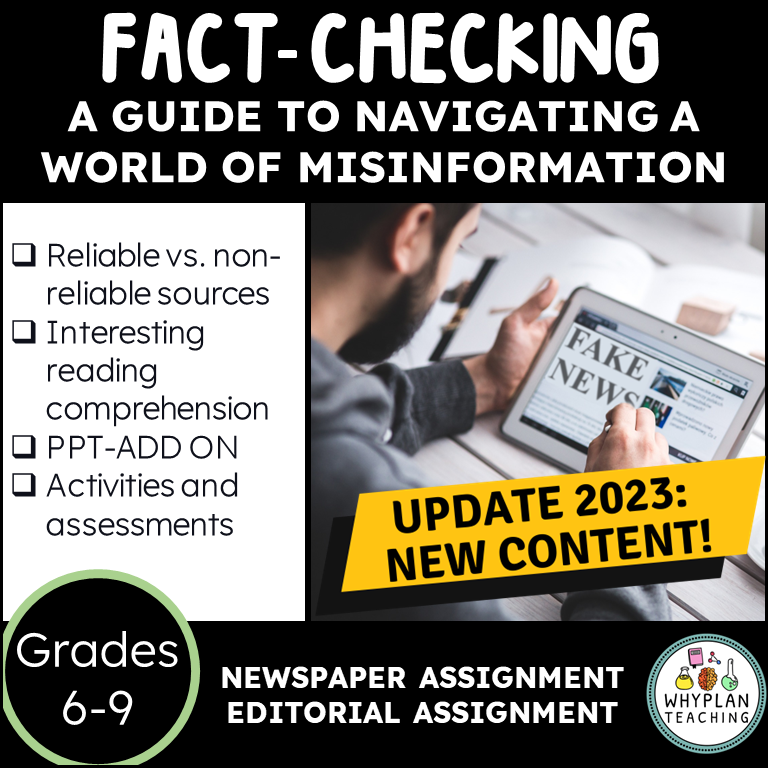Are you struggling to teach your students how to find reliable sources online? My comprehensive guide offers practical strategies to help your students develop digital literacy skills and evaluate online information effectively.
In today's digital age, students must understand how to differentiate between reliable and non-reliable sources. My guide provides information on all types of misinformation on the web, including myths, superstitions, predictions, and conspiracy theories. Using embedded links and QR codes, students will learn how to identify credible sources and evaluate the accuracy of the information they find online.
My resource includes various materials to support your instruction, including a fact-checking activity, a fact-checking mini-assignment with success criteria and a rubric, and a PowerPoint presentation. Students will gain practical skills in fact-checking, critical thinking, and evaluating sources.
As an educator, you know how important it is to promote digital literacy skills among your students. With my comprehensive guide, you can enhance your students' research skills and help them produce high-quality work. Keywords for this resource include education, digital literacy, reliable sources, internet research, fact-checking, primary sources, secondary sources, critical thinking, rubric, and success criteria.
Don't let your students fall prey to misinformation on the internet. Get my comprehensive guide today and help them become digital literate researchers!
This resource has:
1) Information on all types of misinformation on the web (with embedded links and QR codes)- To online articles and videos
2) Information on reliable vs. non-reliable sources (with embedded links and QR codes) - To online articles and videos
3) A PPT linked with embedded codes and QR codes (on the same topics)
4) A fact-checking assignment activity
5) A fact-checking assignment mini-assignment with success criteria and a rubric
6) 03/11/2023 - added activities and assessments (newspaper and editorial assignments) with a new look and improved organization
Elevate your students' digital literacy skills with our comprehensive guide designed to discern and validate reliable online sources. This resource aligns perfectly with the Ontario Language Curriculum and boasts versatility, complementing most language curriculums in North America.
If you have any concerns/suggestions, please e-mail me at whyplanteaching@gmail.com.
Fact-Checking, A Guide to Knowing Fact vs. Fiction, Language Resources
GRADE LEVELS
6th - 10th, Homeschool
SUBJECTS
English Language Arts, Life Skills, Informational Text
RESOURCE TYPE
Research, Activities
FORMATS INCLUDED
PDF - PPT
PAGES
38
